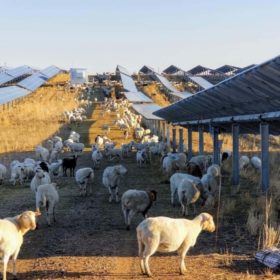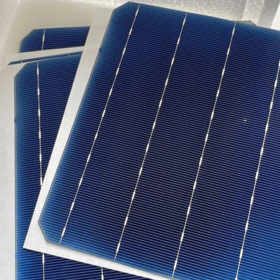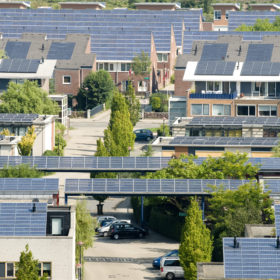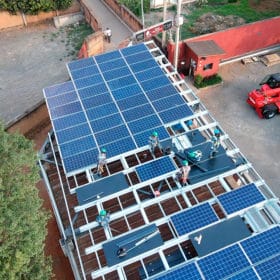Shell completes Powershop takeover despite widespread outrage
Shell has completed its acquisition of Powershop Australia. The takeover sparked a heated outcry when it was first announced in November.
Grazing animals increase carbon sequestration by up to 80% in PV projects
Temple University researchers have found that managed sheep grazing on an acre of recovering agricultural soil with native plants may sequester 1 ton of carbon per year, which could accumulate for 12 to 15 years before reaching saturation.
Australia’s battery capacity to double in 2022
After the deluge of announcements last year, 2022 will see the trickle of big batteries actually operating in Australia turn to a flood. According to Rystad Energy, the country’s battery capacity is set to double before the year is out.
German consortium develops 19.7%-efficient PERC solar cells made of recycled silicon
Led by German research institute Fraunhofer ISE, the consortium has built the solar cells with 100% crystalline silicon recycled from end-of-life photovoltaic panels. The silicon is recycled through a technique conceived by German specialist Reiling GmbH & Co. KG and the Fraunhofer Center for Silicon Photovoltaics CSP.
Robot dog for PV plant monitoring
Spanish renewable energy company Acciona is using a robot dog, instead of drones, to monitor a solar park in northern Chile. The device has a built-in thermal vision system that generates thermographic reports on the status of the different PV plant components, as it walks between the panel rows following a programmed route.
Taiwan sets solar FITs for 2022
The new feed-in tariffs range from NT4.0031 ($0.14) to NT5.8952 ($0.21) per kWh. PV systems of all types will be applied a grid tariff of NT0.0656 ($0.002)/kWh and the funds raised through this fee will be used to set up a PV module recycling scheme.
Italian region devotes €22 million to ‘energy communities’
Italy’s Lombardy region will use €22 million to build up to 6,000 “energy communities,” for a total installed capacity of up to 1.3GW.
Net metering would offer a solar rooftop alternative to uneconomic Kenyan utilities
Commercial and industrial clients across the continent are turning to solar amid fears ever more cash-strapped conventional electricity companies will be unable to invest in their creaking grids, an online event has heard.
Large-scale storage options for compressed hydrogen
Researchers from Finland and Sweden have reviewed different ways to store compressed gaseous hydrogen, including storage vessels, geological storage, and other underground options.
Photovoltaics for curved surfaces
Researchers in Japan have used heat-shrinkable polymers to laminate organic photovoltaics onto curved surfaces. The process improves efficiency while minimizing damage to photovoltaic components.










